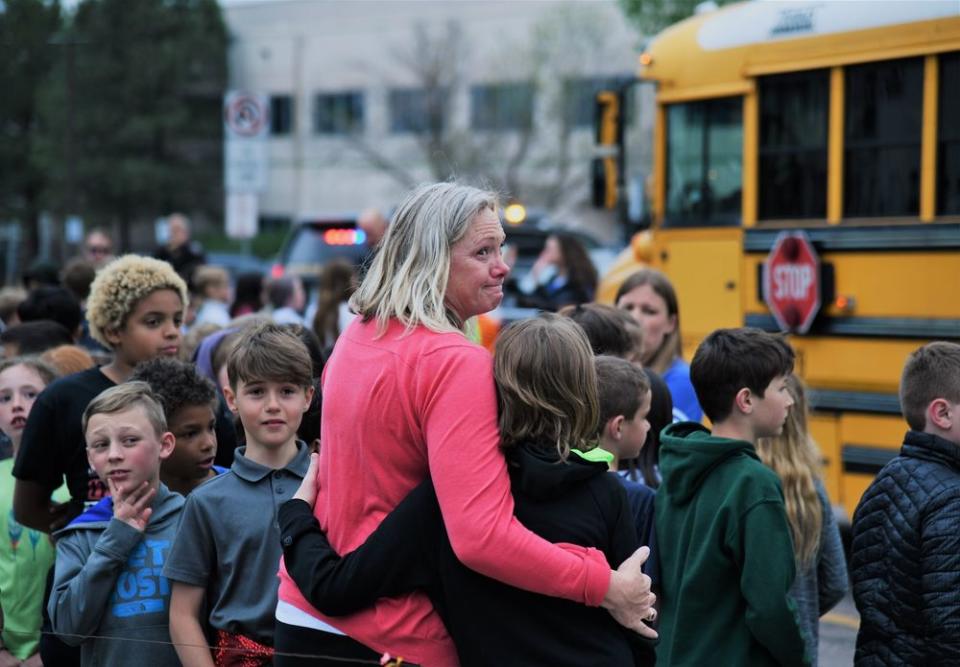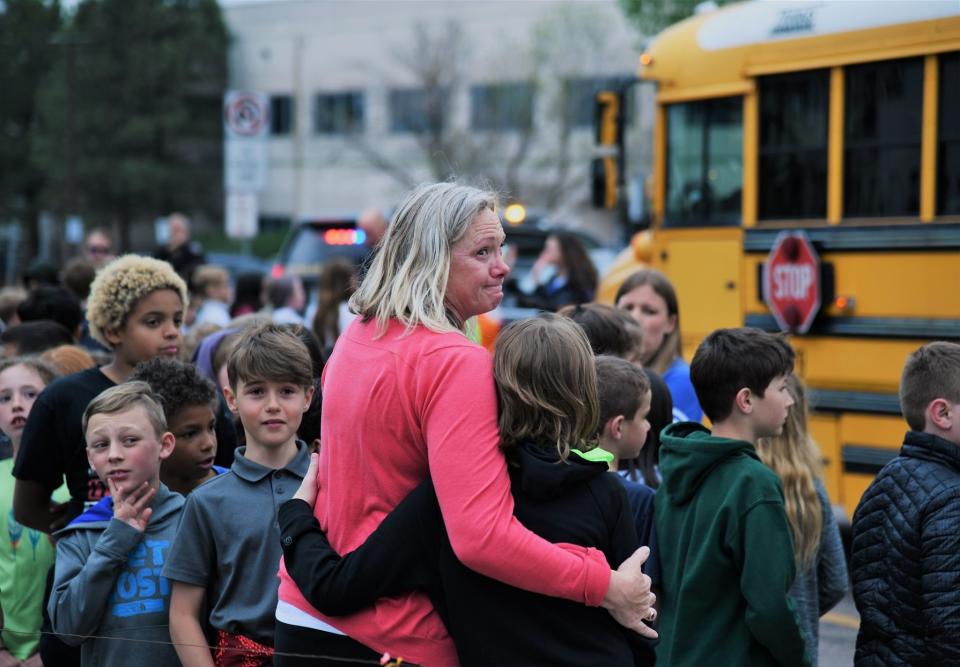How to Explain School Shootings to Your Kids

Within the past decade, school shootings have made headlines repeatedly. Incidents such as those that occurred in Newtown, Connecticut, and now, Parkland, Florida, leave parents, school staff and children afraid. Although you may try to shelter your kids from these events, they will probably hear about them in school or elsewhere. Follow these steps to help your child deal with school tragedies.
Talk About It
First, make sure the discussion is necessary. With preschoolers and kindergarten-age children, unless they're talking about it or showing other signs they've heard about the incident, you don't have to mention it, says child psychologist Tamar Chansky, Ph.D., author of Freeing Your Child from Anxiety: Powerful, Practical Solutions to Overcome Your Child's Fears, Worries, and Phobias. Older kids are more likely to hear about it from friends or through the media, so you definitely need to address the issue. Start with an open-ended question like "Did you hear anything about what happened at another school today?" That allows you to find out what your child already knows and whether you need to clear up any misinformation. Then explain what took place. You could say, "A sad thing happened at a school in____. A man shot people, and some of them died. The police got the bad guy. A lot of people are very sad, but there will be lots of help to make them feel better." Then ask your child if she has any questions. Let her know she can come to you anytime she has questions or wants to talk.
Comfort Your Child
Even if a shooting has occurred hundreds of miles away, your child will likely have some feelings about it. Ask what he thinks and let him share his emotions. Revealing some of your own feelings, such as, "I feel bad for the victims," will help him understand that sadness, confusion, and anger are normal. Give lots of hugs and attention and let your child know you love him and will take care of him.
Calm Her Fears
After learning of such an event, your child might worry that something similar will happen at her own school. Even if you have concerns of your own, don't tell her. Instead, explain that school shootings are rare. Then, "help the child feel a sense of safety by discussing the ways the school works to keep children safe, such as keeping the front door locked, requiring visitors to identify themselves and sign in, and posting cameras at the entrances," says Marla W. Deibler, Psy.D., a psychologist and executive director of the Center for Emotional Health of Greater Philadelphia, LLC. For your child's peace of mind, and your own, check with the school or district to see what measures they have in place to keep students and staff safe.
Watch Your Reaction
It's hard to control your emotions after such terrible tragedies, but how you react or what you say afterward can be frightening to children. Avoid comments such as "I can't believe those children won't get to spend the holidays with their parents" or "I hope they give them [the perpetrators] the death penalty." Be aware of your behavior, too--no looking around nervously or following the "sketchy man" walking near the school when you drop your child off in the morning. "When we express ourselves like that, children see this as an out-of-control situation," Dr. Chansky says. This can cause your child to be more anxious and fearful. That's not to say you have to bottle your emotions. It's okay to share those feelings with your spouse or another adult, but put on a confident face for your child.
Monitor media consumption
You may be tempted to glue yourself to the TV to find out as much information as you can about the shooting, but because the graphic nature of school shootings is unpredictable, it's best to change the channel or turn the TV off when children are present, Dr. Deibler says. Images may be inappropriate, and some young children don't realize the report they're seeing on the five o'clock news and then again on the six o'clock news are rehashes of the same event. Instead, they may think multiple school shootings have occurred. Dr. Chansky says young children don't need to see any coverage of the event; it's best for you to provide the information. Because adolescents are more independent (and may search out information on their own), she says it's okay if the two of you watch an episode of the news and then discuss it.
Allow Them to Help
Some children are better able to cope with a tragedy if they feel they're doing something to make it better. If your child is interested, help her think of ways she or the family can assist the community affected by a shooting. Doing things like sending cards to students at the school, hosting a bake sale or penny drive to raise money for the families of the victims, or saying a prayer for the injured can make kids feel they're doing some good.
Watch for Signs of Stress
Such a tragic event is difficult for adults to comprehend, so it can be even more so for kids. It's normal for children to show some fear and be a little down in the dumps for a few days after hearing about a school shooting. You should also expect your child to ask questions periodically (and sometimes repeatedly). If your child shows signs of extreme stress or anxiety related to the event, such as changes in appetite, difficulty sleeping, aggression, withdrawal from social activities, or trouble concentrating at school or resistance or refusal to attend, seek help.


